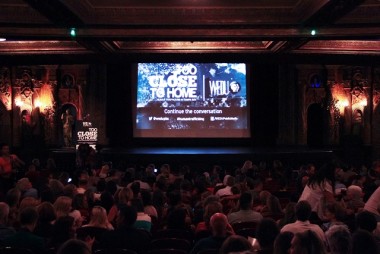Tag: Education/Engagement
NPR’s Generation Listen celebrates one year, looks ahead at SXSW
The effort to reach the under-30 crowd has had an "experimental" first year, its creator said.Odd Squad to be PBS Kids’ newest math learning series
It’s a question that parents and teachers struggle to answer at home and in the classroom: how do we make math fun ...PubTV stations earn new revenues as ‘problem-solver’ for educators
At Vegas PBS and WHRO in Norfolk, Va., station leaders developed a “strategy of survival” that evolved into an innovative education-based ...CPB, PBS announce $20M for initiative focused on low-income families
A significant chunk of the money will be earmarked for Hispanic families.Focus on collective impact highlights pubTV’s role as community convener
Stations work with local partners to identify challenges faced by their communities and to coordinate outreach. Our first in a series about ...With Top Coast Festival, MPR News mounts its own big-idea conference
Minnesota Public Radio News will look for solutions to the world’s pressing problems at its first Top Coast Festival, a three-day conference ...Seventeen stations win grants from POV for outreach on education docs
One of the films, Brooklyn Castle, looks at a junior-high chess squad that has won more than 30 national championships, more than any other ...Flatow finds more traction for ‘Science Friday’ in PRI distribution
After two decades as a weekly NPR program, the 22-year-old Science Friday is preparing to shake things up. With its move to Public Radio ...American Grad survey details support and challenges
A new survey of more than 460 community partners in CPB’s American Graduate project found enthusiasm for the station-based dropout-prevention initiative as ...Gettysburg native retells 150-year-old story through latest technology
A new documentary airing on Maryland Public Television this month incorporates high-tech cinematography to offer a fresh new take on the 150-year-old ...WEDU debuts doc on troubling local issue that few see in their midst: human trafficking
WEDU's Too Close to Home, which was previewed to a packed theatre before its Sept. 26 broadcast debut, reports personal stories behind a troubling ...Online resource PBS LearningMedia registers more than 1 million users
PBS LearningMedia, a digital classroom resource for K–12 educators, topped more than 1 million registered users this month. Operated through a partnership ...Sequestration cuts now figure into APM’s Budget Hero online game
American Public Media has updated its popular online game Budget Hero to reflect the ongoing battle over sequestration cuts in Congress. This fifth ...Second American Graduate Day to raise dropout awareness nationwide
The second American Graduate Day, a live multiplatform “call to action” event focusing attention on high-school graduation rates, hits public TV airwaves ...Crowd at WPT kids’ event gets a welcome from the White House
Michelle Obama is kicking off a special event hosted by Wisconsin Public Television this morning. Appearing in a pre-recorded video, the first lady ...








